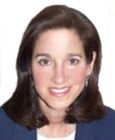
Relationships
Love and Money: Get Out of Your Own Way!
What does money (and love) have to do with it? Listen to Tina Turner's wisdom.
Posted October 4, 2012

Tina Turner once said,
What's love got to do, got to do with it
What's love but a second hand emotion
What's love got to do, got to do with it
Who needs a heart when a heart can be broken
When it comes to money and love, fear can be a great driver of lost opportunity and limited choices. When you perceive that you don't have enough money or love, your scarcity button is pushed, and you feel hungry, needy, even victimized. Some of us will take any job out of fear; some of us will not even apply for a job out of fear. Some will accept a relationship out of fear; some will not even try because they fear taking risks or being hurt. Some perceive the romantic marketplace as being too limited just as some believe there is a limited amount of money to go around. We have also noticed that fear of not enough money often goes hand in hand with fear of not enough love: "because I don't have enough money, I don't deserve love...or you will distance yourself, love me less, because of my finances."
This is the emotional consequence of the psychology of scarcity, in which there is a deep, unfulfilled chronic yearning, a sense of simplynot being enough or not having enough. It is often coupled with a well developed cynicism—an attitude—that one'sneeds willnever be sufficiently met. The attitude of scarcity rarely results in greater opportunities or the capacity to see choices beyond the known.
Tina was also speaking to the psychology of "just going with your impulses"—which can get people into trouble with both love and money. As she described in this song, the feeling in your body, or the fantasy that is generated by these feelings, may not signal love, and is fraught with emotional danger:
You must understand though the touch of your hand
Makes my pulse react
That it's only the thrill of boy meeting girl
Opposites attract
It's physical
Only logical
You must try to ignore that it means more than that
Tina then goes on to say,
I've been taking on a new direction
But I have to say
I've been thinking about my own protection
It scares me to feel this way
Yes, it is scary to take on a new direction, with love or money. We are all creatures of habit, doing what feels comfortable and "normal." We're struck by how many people will habitually use the same strategy—for finding a job, a lover, or making more money--even when it doesn't work or has repeatedly failed.
So what can we do? Start by discovering your beliefs about sufficiency and scarcity. We are all guided by deeply held emotionally meaningful beliefs about what we can and can't have in love and money. I've known people who have almost nothing but would give you the shirt off their backs if you needed it. While others who earn plenty, even those in the 1 percent, may still feel a profound hunger for more money, feeling very anxious and fearful there will never be enough. Importantly, be honest with yourself in gaining clarity about your core beliefs and values that set the foundation for your financial and romantic decision making.
Next, learn about how you maintain certain core beliefs and values, even when they no longer serve your needs. All of us have the psychological ability to regulate our feelings, thoughts, and actions to best attain our goals. You can think of this as if you have an internal money and love thermostat (like on your heating system) that regulates our emotional and financial behavior. The setting of this thermostat is directly guided by your beliefs, which may either motivate or undermine your actions. Most of us are not aware of our power to change the setting of your personal thermostat. To become aware of your personal financial thermostat setting, you need to: Discover where you have set your personal thermostat, to see whether you are suffering from over or under self-regulation. For example, some of us feel very comfortable using the psychological defense we call, "telling yourself a false story" by leaning on a rationalization of why we can't do something or have something we want, such as "I can't find a life partner because all the good ones are taken...believe me, I've tried." This is an example of over-regulation of behavior: How particular life experiences can be used as a rationale to give up hope, effectively buying into 'small sampling error'.
Once you know how you have completed an honest discovery of your core beliefs, and see how your personal thermostat helps or hinders, you can then develop a plan to take calculated risks that allows you to step outside of your own personal box.
Those with Affluence Intelligence recognize their fears, but are not controlled by them. They know when a path has hit a dead end, and find new directions. This can be scary, change comes with uncertainty, but offers new learning and choices. When self-protection drives your life; when youare led by your defenses instead of by your best intentions, then your life may run in circles with little new discovery or opportunity.
Tina was right: It is scary to risk love, and you do need to proceed forward with care, but without the risk, all you got is love as second hand emotion. But, by knowing your core beliefs, and taking control of your Affluence Intelligence Thermostat, you will discover new opportunities and increase the likelihood of success in both money and love.

